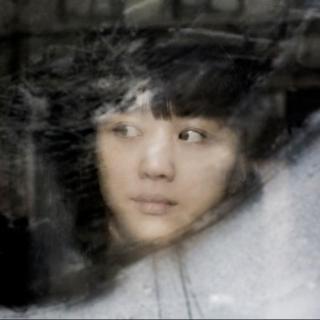
介绍:
更多影评信息请关注咱们今天的微信:搜索英语环球 NEWSPlus
The Golden Era is a 2014 Chinese-Hong Kong drama film directed by Ann Hui and starring Tang Wei and Feng Shaofeng. Tang portrays Xiao Hong, while Feng plays Xiao Jun; both are two of the most important writers in 20th century China. Laiming tells us more.
Before seeing Chinese director Ann Hui's latest offering "The Golden Era", I was compelled to do a bit of homework, because this biopic of Chinese writer Xiao Hong seemed pretty daunting to anyone who are not familiar with Chinese literary circle in the early 20th century. However, after a grueling three-hour-long screening, I found these efforts totally unnecessary.
"The Golden Era" is along the same line of the director's usual creative impulse of telling stories from a feminine perspective. Her version of Xiao Hong is a girl who spent her entire life running away from patriarchal control, yet had to rely on men in each step she took. It was an era when traditional values began to dissolve along with the collapse of China's last imperial dynasty, but it was not at all a golden era for women.
About the age of 20, Xiao Hong eloped with a young man to escape her abusive father and an arranged marriage. Her conspirator of a boyfriend abandoned her when hotel bills swelled beyond their means. Confined by the hotel owner who threatened to sell her to a brothel, a pregnant Xiao Hong wrote to a local newspaper asking for help. That was how she met Xiao Jun, a married man and an editor of the newspaper who later became her partner both in life and in literary career. At the encouragement of Xiao Jun, Xiao Hong began the life of a writer and gradually established her name among the literary circle. But eventually the couple split up due to different life choices and Xiao Hong married another man, a few days before she died of tuberculosis.
The film is expected to include a panorama of Chinese literary figures of Xiao Hong's time and to offer an insight into that part of Chinese history. It was a reasonable speculation because the director had three hours to fill, with nothing but the 31-year of Xiao's tragically short life. However Ann Hui hardly paid any heed to characters other than the most important men in Xiao's life. As for the turbulent and eventful history, that was scarcely the concern for Xiao Hong the writer, and was therefore given minimum attention. The focus of the film remains on the fate of the female writer in relation to the men in her life.
Some critics also lashed out at the director's experiment with the narrative format. Much of Xiao Hong's life remains a myth due to contradicting accounts offered by her contemporaries. These accounts are frequently brought up as interludes in the film, where the speakers often address the audience directly. Such arrangement may seem a bit strange and could create a false sense of authenticity. But "The Golden Era" is not to be mistaken as a documentary; it is merely a conduit for the expression of feminine ideas.
Lead actress Tang Wei is not to blame for a character that's constantly in sight but never in focus; she's done her best to portray a mystical woman within the constrains of the script. Feng Shaofeng, Wang Zhiwen and Zhu Yawen also present as much skills as is needed in the plot.
"The Golden Era" is a film for a niche audience; it is not likely to make much of a dent in the box office. But I'm sure it'll resonate among the most understanding critics.
大家还在听

